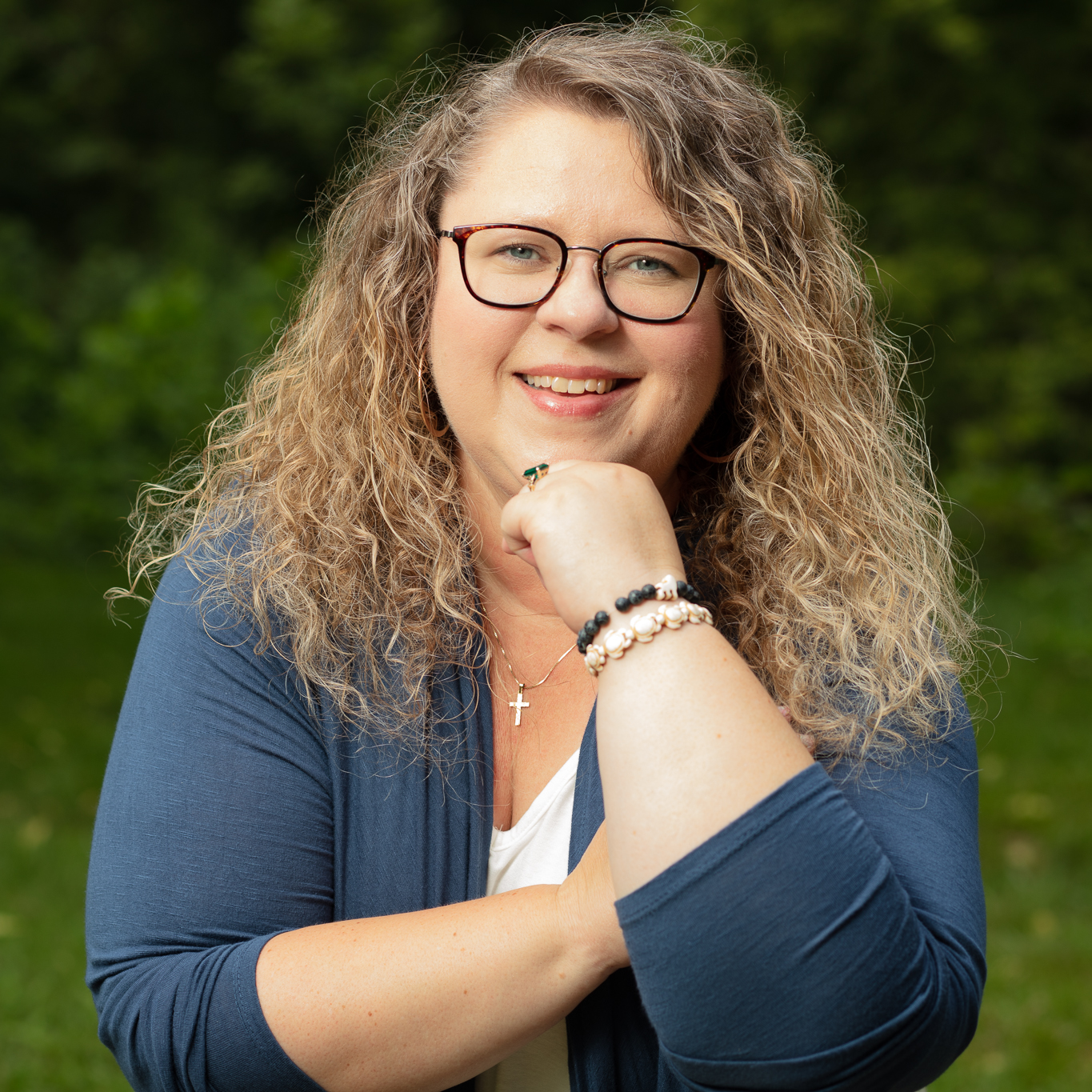Dana Haram, LMFT

Dana, how long have you been doing what you do and how did you come to be an experienced Counselor for Women with Complex Trauma and Couples?
I’ll begin with why I chose the work that I do. I have been with my husband for over 25 years, and we are blessed with two teenage children. I was also blessed to grow up in a family with two amazing parents of faith who have been stable supports and a wonderful example of what marriage can be like. Through relationships with friends and other family members, I also witnessed the impact when that stable marriage foundation is missing. This is what inspired me to get my master’s degree in Marriage and Family Therapy from the Christian Theological Seminary in 2003.
I have worked as a therapist for over 20 years. I began my career working with sexually traumatized children and their families or caregivers. While doing this work I saw how great the need was for treating those with complex trauma. This ignited a passion within me to come alongside those individuals.
 After doing this work for several years I found myself most drawn to working with adults and began working in an integrated care clinic with family practice physicians. In that setting, I had the opportunity to provide treatment to the clinic’s patients and educate clinic staff about mental health issues. In that capcity, I was able to treat a wide variety of mental health issues including PTSD, depression, anxiety, grief, couple’s issues to name just a few.
After doing this work for several years I found myself most drawn to working with adults and began working in an integrated care clinic with family practice physicians. In that setting, I had the opportunity to provide treatment to the clinic’s patients and educate clinic staff about mental health issues. In that capcity, I was able to treat a wide variety of mental health issues including PTSD, depression, anxiety, grief, couple’s issues to name just a few.
What I recognized was that most of my clients’ functioning was being impacted by their history of trauma. When we were able to address the trauma, they were able to see a reduction in symptoms. Frequently, clients hadn’t realized those symptoms were related to their past trauma.
While working at the integrated care clinic, I became trained in EMDR (Eye Movement Desensitization and Reprocessing) which is a valuable tool in working with those struggling with trauma as well as other mental health issues when clients feel stuck.
I’ve also been trained in Cognitive Behavioral Therapy (CBT) and Acceptance and Commitment Therapy (ACT) all of which are evidence- based treatment modalities I can utilize with those who are struggling with symptoms associated with trauma.
Through my church I had the opportunity to become trained as a Prepare/Enrich facilitator which is a wonderful tool for assessing and providing structure for marital and premarital therapy. I have found it to be a beautiful guide for couples to better understand their relationship and find out where they need support in their growth journey. I believe that frequently, couples need someone who will come alongside them and encourage them to see the positives in one another, remind them of their commitment, and give them structure for maintaining a healthy relationship. This tool supports that process well.
How are you different from other therapists?
The most unique thing you’ll notice about me is my reliance on God. I have found over the years that my faith brings clarity and peace for both me and my clients.
I also feel my years of experience and training create a rare mix of knowledge that is at my disposal when working with my clients.
I’ve spent a lot of time considering who I’m best at serving. I am not a generalist therapist. I will only offer services to you, if I really believe I can help you.
 My greatest hope for my clients is that they have the ability to accept the following words from Jesus, “Come to me, all who labor and are heavy laden, and I will give you rest. Take my yoke upon you, and learn from me, for I am gentle and lowly in heart, and you will find rest for your souls.” Matthew 11:28-29
My greatest hope for my clients is that they have the ability to accept the following words from Jesus, “Come to me, all who labor and are heavy laden, and I will give you rest. Take my yoke upon you, and learn from me, for I am gentle and lowly in heart, and you will find rest for your souls.” Matthew 11:28-29
In the midst of the chaos present in our lives, most of us desire this place of peace God offers. It can be a struggle to find. Choosing to come to therapy and being willing to do the work required to see change happen is a large step towards the peace God wants to bring to your life.
The treatment I provide is founded in Christian principles because I am a Christian, but I am not a “Christian counselor.” I will not force my faith on clients, and I recognize everyone is at a different place on their faith journey. I will not preach at you but will likely pray for you.
Who are your clients exactly?
I work with two main categories of clients.
Women with Complex Trauma:
The first are women who struggle with feeling stressed, anxious, depressed, irritable, pained and have a history of trauma either in childhood or as an adult. Many people aren’t sure if they have a trauma history and if they do know they were traumatized may have never considered their complex trauma could be the reason for their depressed mood or anxious symptoms.
Most of the women I work with have trauma associated with one of the following:
- Childhood abuse (physical, sexual, emotional, neglect, witnessing domestic violence)
- Victim of domestic violence (physical, sexual, emotional, technological)
- Witnessing a traumatic event or being a victim of a crime
All of these women are strong, bright women who have been powering through life staying busy as a way to avoid their difficult, painful history. When they come to see me, they’ve reached a point in their life where they’re tired of pretending they have it all together. They are ready to begin facing the things they’ve been hiding from, so they can begin the healing process and vibrantly live.
Couples:
The second category of clients I work with are couples who are seeking premarital or marital therapy. These couples may have had some struggles along the way in a variety of areas such as:
- Past relationships/previous divorce
- Parenting difficulties
- Extended family struggles
- Intimacy issues
The couples I work with are those who are committed to their relationship staying together for the long haul and want to see the benefits couples therapy can bring such as:
- Improved communication
- Conflict resolution skills
- Better understanding of Love Languages
- Increased connection between one other and God
These couples consist of two people invested in seeing change happen in their relationship. They are willing to do the work required in order to reap the benefits that come with the closeness and intimacy present in a relationship where God is woven into the fabric of their relationship.
What if I don’t fall into that category of client?
I work with a variety of women and couples who begin therapy at different points in their lives and come from a variety of backgrounds. The most important quality for anyone seeking treatment is willingness. This means willingness to jump in and do the hard work it takes to see change happen in your life and in your relationships.
What type of personality do you work best with and what is expected of me?
The therapeutic treatment I provide is uniquely created to meet my clients at their point of need.
Individual Women:
The women I meet with individually have been exhausted by life and all the work it takes to pretend they’re okay. They’re ready to finally be free and learn who God created them to be. They want to learn skills so they can see lasting change. They’ve struggled for a long time and they finally recognize it’s time to make a change; they don’t want to do things halfway. They want to get to the heart of the matter and feel more empowered.
Couples:
Couples give me the opportunity to both teach and have fun. I enjoy using humor in all of the therapy I do but especially in couples therapy. I believe there is healing power in humor. I feel marriage is one of the most important foundations of society. This is one of the reasons I chose to be a marriage and family therapist. While it’s important work, there’s no reason it can be fun or enjoyable.
I expect the couples I work with to be committed first and foremost to each other and secondly to commit to any and all assignments given in treatment. The assignments in couples work are what will bring about the most growth and healing. Each member of the couple needs to be all in and willing to follow through on assignments.
What type of person will NOT be a good fit for you and your services?

Our success together requires multiple things and I work hard to determine whether my services are a good fit for you. I’m selective in working only with clients who match my specialty areas and passion.
The treatment I provide is customized to your unique needs. It is not the kind of treatment you will find at just any therapy office. The knowledge and activities I use with my clients have been developed over my 20+ years of counseling. I’m committed to providing you with the best treatment possible.
I am invested in you reaching your goals. I also expect you to be invested in your own change. How you engage will determine your level of success. My role is to teach you the tools, and provide you with a different perspective, but you will have to give your all in order to see the results you want.
We won’t be a good fit it:
- You’re not invested in doing the work.
- You just want to use their insurance to see the cheapest provider.
- You are looking for your average, boring therapist.
Are there any types of issues that will NOT be a good fit for you and your services?
Individuals who are:
- struggling with active substance abuse issues.
- actively engaging in self-harm behaviors.
These require specialized training and intensive treatment that I do not provide.
Couples:
- where one partner is not fully committed to doing the work, and may be contemplating divorce. I am not interested in helping people divorce amicably; I want to work with couples committed to staying together and building a healthy relationship.
- who are presently in domestically violent relationships. This is another area requiring specialized and intensive treatment.
Does this really work?
Yes, the clients I meet with experience lasting change. Here are a few of the results my clients experience:
- healthy boundaries which lead to healthier relationships
- more JOY
- a closer relationship with God and those most important in their lives
- less fear
- learn how to LOVE and be loved
- better decision making skills
- achieve personal goals
- follow through with self-care that isn’t selfish
- learn how to utilize supports without feeling like a burden
- build a sense of HOPE for the future
- increased awareness of needs and desires
- know how to communicate needs and desires
- manage emotions and thoughts before becoming overwhelmed
- find PEACE both within yourself and in your relationships
OK, I’m interested in learning more. What are next steps?
Just click the button below to get scheduled for a Complimentary Phone Consultation. We can get to know one another and see if working together will be a good fit. I can’t wait to chat with you and learn more.
